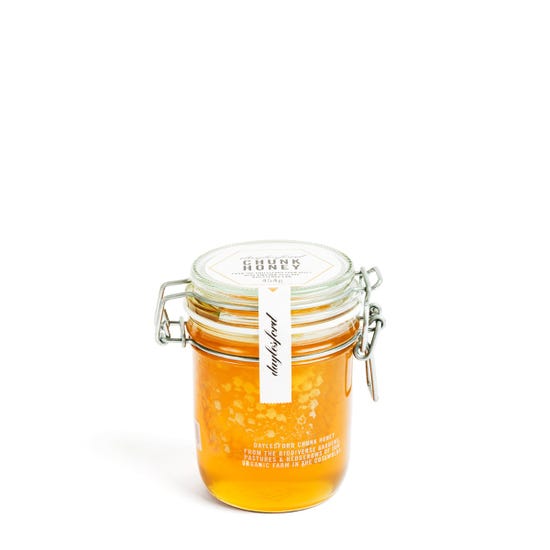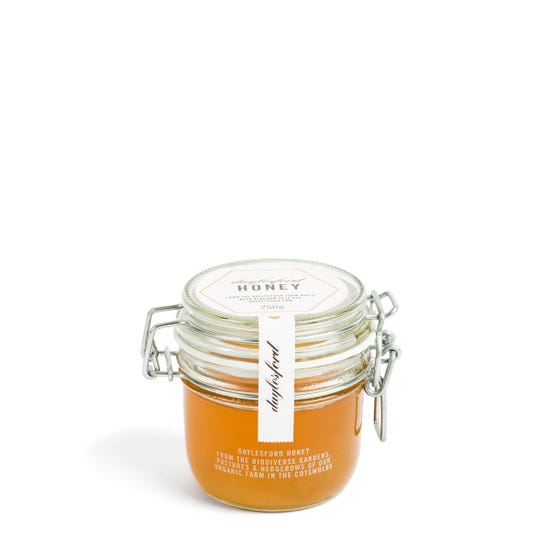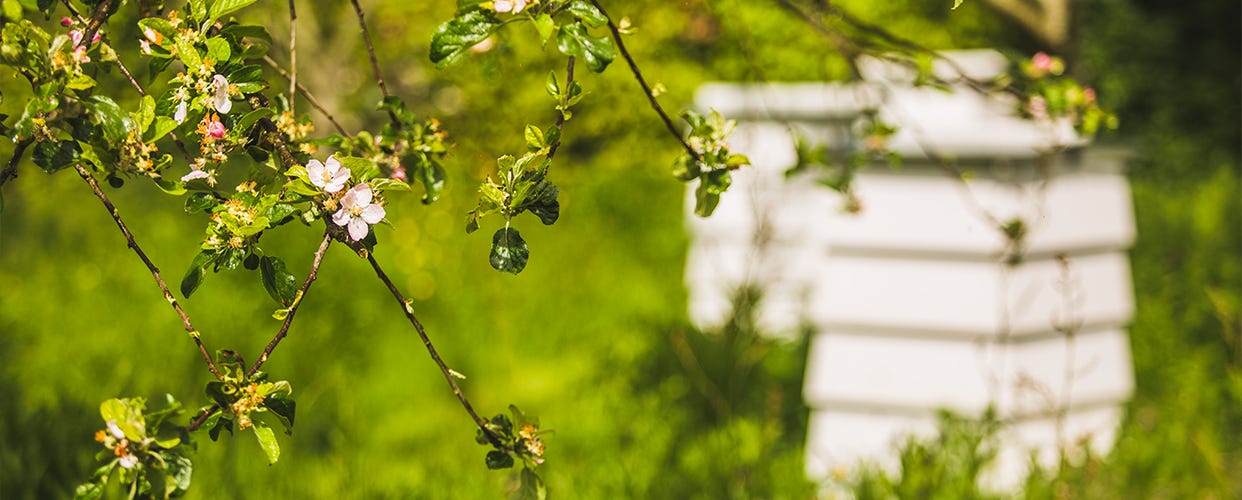
Bees at Daylesford
Everyone knows that bees make delicious honey but they are far more important than that – without them, life as we know it simply would not exist. Read on to find out why we should all care deeply about these special insects, and what we are doing at Daylesford to support the bees and other vital pollinators.
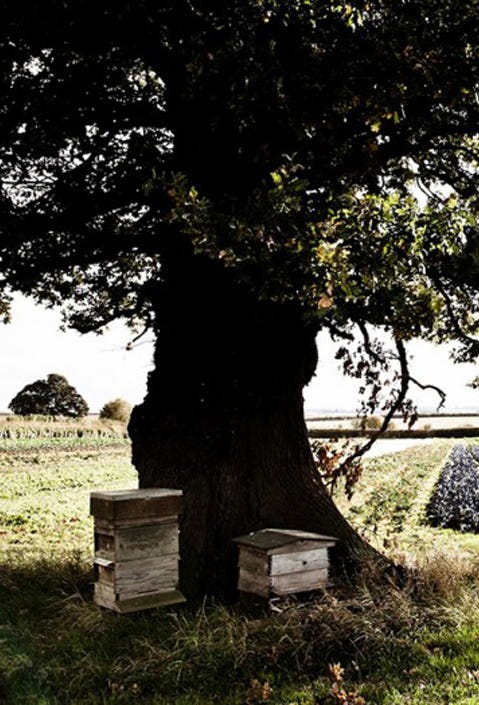

BEES AFFECT THE QUALITY AND QUANTITY OF OUR FOOD
Scientists estimate that 35% of global crop production relies on bee pollination. In other words, every third bite of food is thanks to the hard work of bees.
Not only do these insects contribute to the quantity of our food, they add to the quality too – without bees we would not have many ingredients that make cooking and eating a joy. Most of the flavourful spices, fragrant herbs, fresh fruits, vegetables and even nuts we eat are flowering plants. Even the best grass-fed meats owe their unique flavour and fat marbling from pastures rich in clover and wildflowers. Although people could still eat in a world without bees, our food would be dull and not as nutritious.
A DEEP CONNECTION TO OUR FLORA AND FAUNA
Without bees, even flowers would not be so colourful and fragrant. Bees and flowers evolved closely together and this coevolutionary relationship influenced the development of each. The amazing diversity of bees (there are more species of bees than all birds and mammals combined – not just honeybees!) is directly linked to the vast array of flowering plants.
Meanwhile flowers adopted the most attractive smells, shapes and colours to encourage bee visitors. Without bees, flowers might have coevolved with other pollinators like wasps and flies which are attracted to aromas of rotting meat – a far cry from the blooms we delight in today.
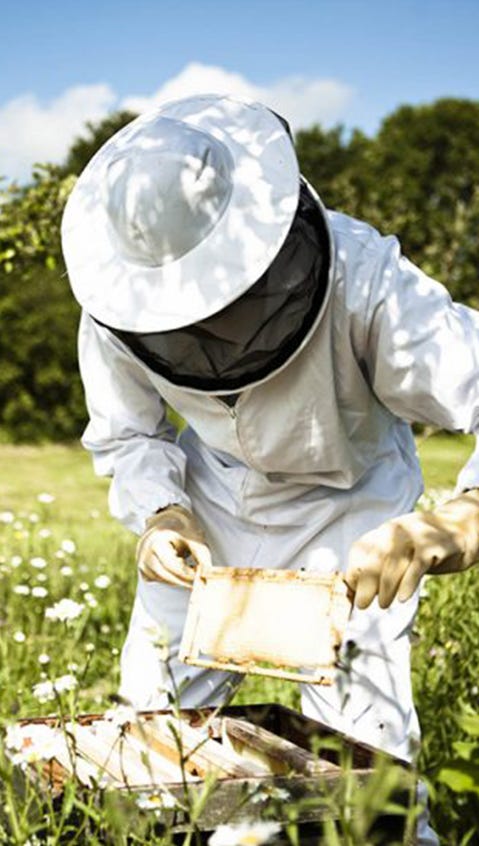

LINKED TO OUR EVOLUTION
People kept bees long before we tamed horses or farmed familiar crops like apples, oats, or coffee beans. Mead, a drink made with fermented honey, has been consumed for 9,000 years, making it one of the oldest alcoholic beverages.
Research undertaken by nutritional anthropologists suggests that our connection to bees goes back millions of years. Our ancient ancestors had a primeval sweet tooth and sought out hives and bees. According to a recent study, early man’s diet would have included up to 15% honey, which would have had a remarkable impact on our human evolution, which has always been a story of brain size. The human brain is metabolically expensive; 20% of our daily calories go towards fuelling the brain, which is just 2% of our whole body weight. Over aeons of human evolution, every surge in brain size is associated with a surge of calories – e.g. improved tools for hunting and the introduction of fire and cooking.
Honey is the most energy-rich food in nature and the glucose gained from seeking out beehives may indeed have helped bolster an increase in brain size over time. Along with hunting, cooking and other innovations, bees and their honey are in fact a major contributing factor of who we are as human beings.
OUR BEEHIVES AT DAYLESFORD
Daylesford has over thirty hives and we harvest a mix of jarred, chunk honey and cut comb. Bees will fly up to three miles from their hives to collect pollen, so Daylesford honey takes on the characteristics from the hedgerows, fruit trees and wildflowers in and around our organic farm.
Every year is different and factors like weather conditions, extreme temperatures and availability of fresh water can have a significant impact. Heatwaves may gave an abundance of flowers, but the downside is the absence of rain means pollinators will find it difficult to find food later in the year – bees can struggle with dehydration and tiredness in very hot weather.
Some of the bees at Daylesford originated from colonies in hollowed out trees, rooftops and other dry, warm cavities. These are as close to wild bees as we get in the Cotswolds and their genetics suit the environment around us.
We know some of the swarms we catch are from these populations and are pleased to encourage the breeding with our wilder bee strains. There are also a few colonies that we introduced from a strain originating from Buckfast Abbey in Devon. They are a joy to handle and less aggressive than some of the colonies which can get a bit jumpy when you try taking their honey!
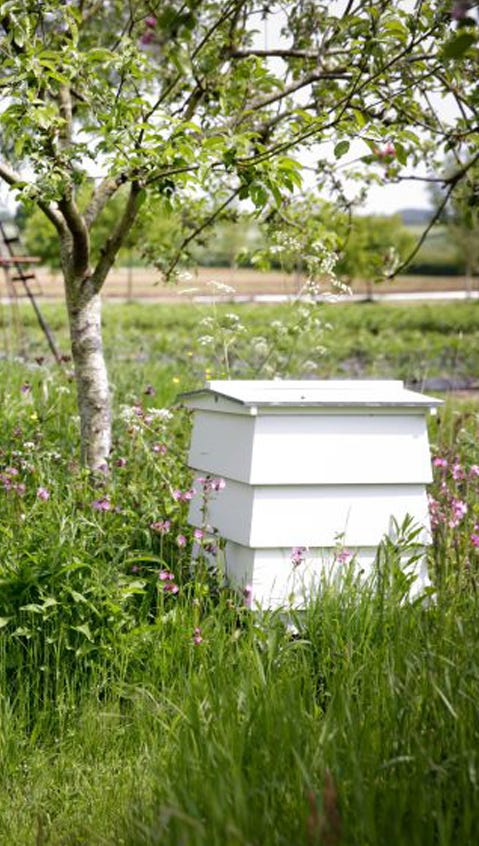

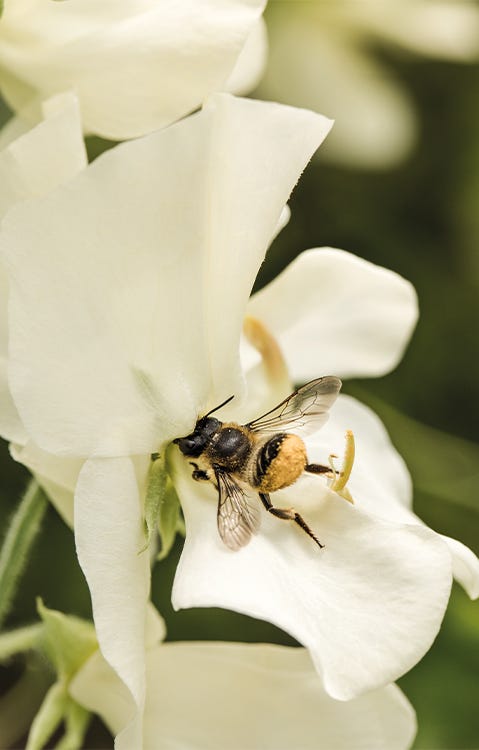

HOW CAN YOU HELP THE BEES?
Offer as much flora and fauna as you possible can for the bees – plant flowers, blooming plants and fruit trees too. Opt for a number of different plants to provide diverse nutrition for the bees. Support local bee communities and beekeepers by buying local honey.
Choose organic wherever possible in your food shopping: organic farmland is more hospitable to pollinators because of their biodiversity and avoidance of pesticides. Scientific evidence points to the damaging impact of neonicotinoid pesticides on pollinating insects, including bumblebees and honey bees. Industrial farming techniques using high levels of chemical inputs and monoculture practices are damaging our wildlife populations and ecosystems. 75% of UK butterfly species have declined in the past decade and eight of our 25 bumblebee species are threatened, with two already extinct. Studies show on average that organic farms have 48% more species of pollinators than non-organic farms.


